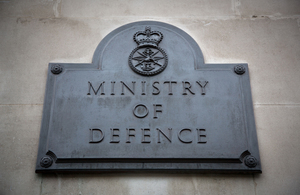School funding boost confirmed for every local authority in England
In another step towards delivering on the government’s pledge to invest a total of £14 billion over three years, the Department for Education has today (17 December) published school funding allocations going to every local authority in England.
This is the second of a three-year cumulative £14 billion funding boost, compared to 2019-20, that gives school budgets their biggest increase in a decade.
Every pupil in England will benefit from a funding boost. The allocations to local authorities, based on the most up to date numbers of pupils in each school, mean that the majority of local authorities will see increases of more than three per cent in the funding allocated per pupil.
Delivering on the Prime Minister’s pledge, every school will get more money for every child – “levelling up” funding and helping to spread equality of opportunity for all. Every school is set to receive the new minima of £5,150 per-pupil funding for secondary schools next year, and £4,000 for primaries, up from the £5,000 and £3,750 which schools are receiving this year in the first year of the funding settlement.
Funding to cover increases to teacher pay and pensions worth £2 billion will also be included from 2021 rather than paid separately, reassuring schools that the funding will continue to be provided in their core budgets.
Extra funding for small and remote schools is increasing by more than 60% next year through the national funding formula, reflecting the financial challenges that these schools can face, and the unique role they play in local communities.
School Standards Minister Nick Gibb said:
Every pupil, no matter what their background, deserves an excellent education and the chance to fulfil their potential.
This three-year school boost is part of our commitment to level up outcomes and opportunities, giving the biggest increases to schools that have historically received lower levels of funding.
It builds on the significant support we have introduced to help the most disadvantaged pupils, including our £1 billion Covid catch up fund to tackle the impact of lost teaching time as a result of the pandemic.
The three-year funding settlement is helping make sure all children and young people receive an excellent education, regardless of where they grow up or go to school.
Alongside this, funding for the pupil premium will continue in 2021-22 with per pupil rates protected to remain the same as this year. This means schools will benefit from £1,345 per eligible primary pupil, and £955 for every eligible secondary pupil.
High needs funding to support children with Special Educational Needs and Disabilities (SEND) is also increasing by £730 million next year, a 10% increase that will bring the total high needs budget to more than £8 billion.
The government’s £1 billion Covid catch up fund is also helping tackle the impact of lost teaching time as a result of the pandemic, including a £650 million catch up premium for this academic year and a £350 million National Tutoring Programme which is on the way to reaching hundreds of thousands of pupils by the summer.
Further, £44 million is being invested in early years in 2021-22, to increase the hourly rate paid to childcare providers for the government’s free childcare entitlement offers.
Also announced today is the provisional Local Government Finance Settlement for 2021-22, providing councils a complete picture of their funding streams for next year.

